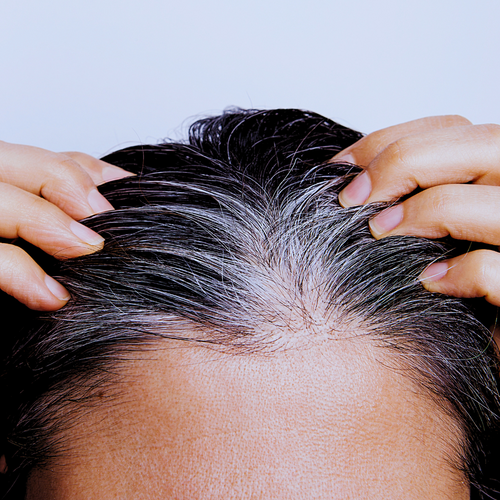Stress is a natural part of life, but in our fast-paced modern world, it has become a daily companion for many. While short bursts of stress can motivate and protect us, chronic stress can wreak havoc on both our mental and physical well-being. In this post, we’ll explore what is stress, its effects, and how you can take proactive steps to manage it effectively.
What is Stress?
Stress is the body's response to any demand or challenge, whether it’s physical, emotional, or environmental. It triggers the release of hormones like cortisol and adrenaline, which prepare the body for a "fight or flight" response. While this reaction is essential in dangerous situations, prolonged exposure to stress can lead to harmful effects on your body and mind.

The Physical Effects of Stress
When stress becomes chronic, it begins to manifest physically. Your body stays in a heightened state of alert, leading to wear and tear over time. Common physical effects include:
• Increased heart rate and blood pressure
• Muscle tension or pain
• Fatigue and disrupted sleep patterns
• Compromised immune system
• Digestive issues, including stomachaches and bloating
• Hair thinning or loss, as high cortisol levels disrupt hair growth cycles
Prolonged stress doesn’t just feel bad—it can contribute to serious conditions like heart disease, diabetes, and chronic inflammation.
The Mental Effects of Stress
Stress takes a toll on mental health, often leading to issues like:
• Anxiety and irritability
• Depression or persistent sadness
• Difficulty concentrating
• Overwhelm and burnout
These mental strains can reduce your ability to enjoy life, make decisions, or maintain healthy relationships. Stress doesn’t just make you feel frazzled; it alters brain function, affecting memory and mood.
Types of Stress
Acute Stress
Acute stress is short-lived and often triggered by immediate challenges, such as giving a presentation or dealing with a sudden change. While it can sharpen focus, too much of it in a short time can feel overwhelming.
Chronic Stress
Chronic stress occurs when stressors persist for long periods, such as ongoing financial struggles or a toxic work environment. Unlike acute stress, chronic stress is harmful and harder to address.
Episodic Acute Stress
People who frequently encounter acute stress may develop episodic acute stress. They often live in a constant state of worry or pressure, impacting their health and relationships.
Eustress
Not all stress is bad! Eustress, or positive stress, helps you grow and achieve goals, like training for a marathon, studying for an exam, or starting a new job.
Common Causes of Stress
Stressors vary widely but often include:
1. Work-related pressures
2. Financial challenges
3. Relationship conflicts
4. Major life changes (e.g., moving or having a baby)
5. Health concerns
6. Overcommitting to responsibilities
Understanding your stress triggers is the first step toward managing them.
Symptoms: How to Know if You Are Stressed
Stress can manifest in various ways, including:
- Frequent headaches or muscle tension
- Feeling overwhelmed or irritable
- Trouble sleeping or staying asleep
- Increased use of alcohol or caffeine
- Loss of appetite or overeating
If these symptoms resonate, it’s time to take your stress seriously.
Consequences of Stress
Left unmanaged, stress can lead to:
- Chronic health conditions like hypertension and autoimmune diseases
- Accelerated aging due to increased oxidative stress
- Hair thinning or loss due to disrupted scalp health
- Reduced quality of life and strained relationships
Stress is more than an emotional reaction—it’s a full-body experience with long-term repercussions.
Tips on How to Manage Stress
Practice Mindfulness
Engage in mindfulness exercises like meditation or yoga to stay present and reduce anxious thoughts. Consider a calming at home tea ceremony.
Stay Active
Physical activity releases endorphins, natural mood lifters, and helps regulate cortisol levels.
Prioritize Sleep
Adequate sleep allows your body to recover from the day’s stress. Create a bedtime routine that includes relaxing activities like reading or sipping calming tea.
Nourish Your Body
Eat a balanced diet rich in antioxidants, adaptogens, and vitamins to support your body’s stress response.
Use Aromatherapy
Incorporate calming essential oils like lavender or clary sage into your daily routine to soothe your mind.
Explore Stress-Reducing Products
Products like adaptogenic beauty and wellness products can provide targeted relief by addressing stress’s physical manifestations.

Frequently Asked Questions
What is stress in simple terms?
Stress is the body’s reaction to a challenge or demand, activating physical and emotional responses.
Can stress make you sick?
Yes, chronic stress can weaken the immune system, making you more susceptible to illnesses.
How quickly can stress affect your hair?
Stress-related hair loss, such as telogen effluvium, can occur 2-3 months after a stressful event.
Are there natural ways to manage stress?
Yes! Mindfulness, exercise, a balanced diet, and adaptogenic products can help manage stress naturally.
Conclusion
Stress is a complex but manageable part of life. Understanding what is stress and its effects on your body and mind empowers you to take action. At Bloomballa, we’re committed to supporting you on your wellness journey.
Explore our adaptogenic products to combat stress from the inside out. Take the first step toward a more balanced, beautiful you.
























